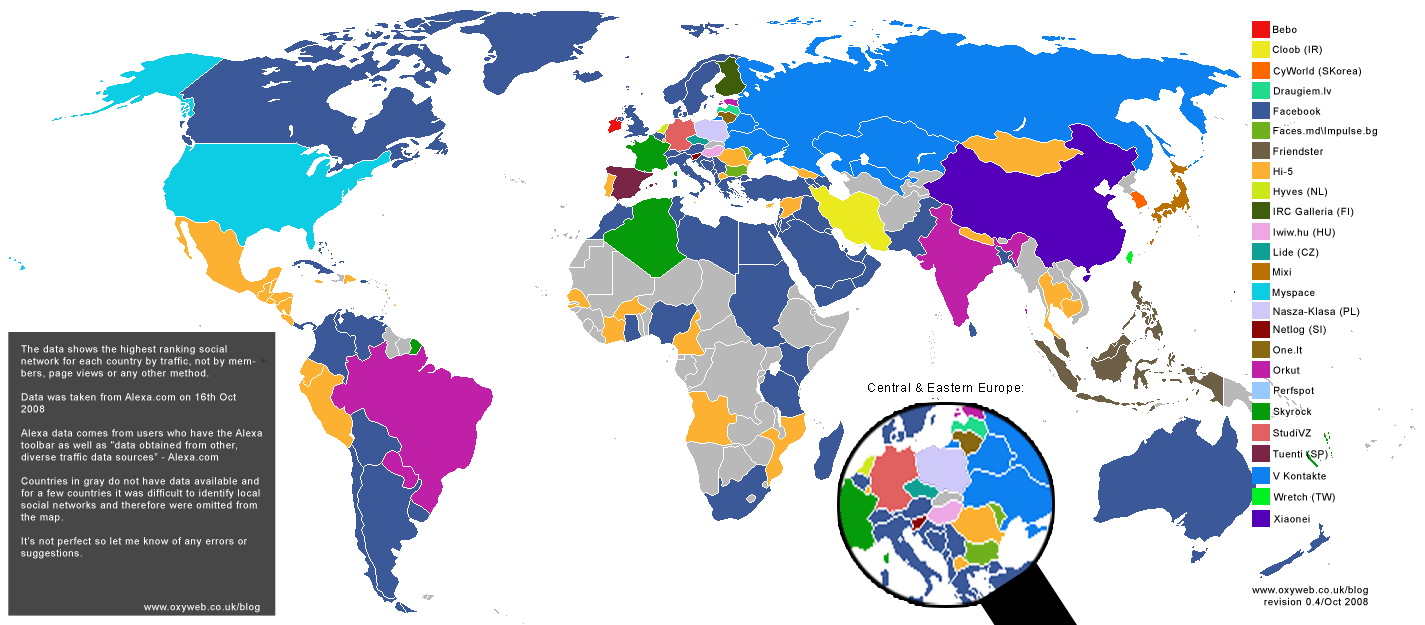
The global growth in social networks is attributed to the need to connect (courtesy of Social Hallucinations)
After thinking about what’s truly different around the world with the increasingly widespread popularity of the social web, one word struck out especially loud and clear.
Real-time relationships.
People need people. We now have a lot more ways to converse and collaborate than ever before. We not only can and need to hear their voices through the phone, but to view their photos, videos, and textual messages on our laptops, tablets and smart phones.
This phenomenon of intense and immediate interaction means that meeting family and/or friends just once a week or fortnight isn’t enough anymore.
We want to “sense” their presence online whenever they log into Whatsapp, laugh or cry at their little quips on Facebook, be drawn into an online debate on their blogs, or just respond with a 140 character (or less) message on Twitter.
Real-time relationships fuels the widespread growth and dominance of social technologies and online communities. They are the social currencies of the 2010s where the continued uncertainty of global economics, man-made calamities and terrorism have torn countries asunder.
When people’s faith in time-honoured institutions and structure-bound organisations are eroded from mistrust, whom do they turn to?
Their friends, family members and aquaintances.
What this means is that nobody is going to just take an advertisement or news story at face value anymore. Organisations that wish to win the hearts and minds of their customers have to do more than just respond to their customers needs. They need to anticipate each and every step which their customers may take.
Now how should being constantly connected affect the way your business should change?
For a start, see if you can get a second opinion online before rolling out your project. Getting a second opinion is faster than ever before.
Your customers can now seek views not just from one party but a whole host of others. They may even chat with them about it. Thus, it augurs well for you to build a strong and supportive online network.
This means that pulling wool over your customer’s eyes will be almost impossible. It also means that you need to be truthful and transparent.
The next thing you need to note is that people will expect an immediate response from you. You cannot afford to go radio silent for days or weeks if you want to continue enjoying a customer’s patrimony.
If you can maintain an “always on” chatline, so much the better (although it may drive your employee’s work-life balance bonkers… topic for another day).
The digital grapevine will also become the place where most buying decisions are made.
Smart businesses know how they can make their offerings so well-loved that their customers will automatically share the news about their latest products or services voluntarily. Of course, the building of online communities then are then an absolute must, in order to grease the wheels of social sharing.
Finally, and perhaps most importantly, customers value businesses who stand on their side.
The greater your degree of empathy with your customers, the better. In fact, you should speak from the perspective of your customers rather than your company, and be seen as a champion for your customers’ needs, wants and desires.
What are the other ways for us to respond to a real-time customer? I’d love to hear your thoughts.
